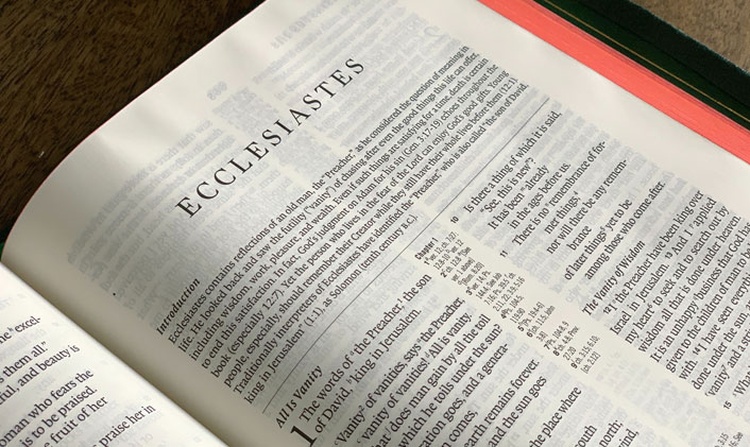The book of Ecclesiastes is the most powerful exposé of materialism ever written. Solomon recounts his attempts to find meaning in pleasure, laughter, alcohol, folly, building projects, and the pursuit of personal interests, as well as in amassing slaves, gold and silver, singers, and a huge harem to fulfill his sexual desires (Ecclesiastes 2:1-11). The more Solomon had, the more he was tempted to indulge. His indulgence led to sin, and his sin brought misery.
Solomon makes a series of insightful statements in Ecclesiastes 5:10–15. I’ll follow each with my paraphrase:
- “Whoever loves money never has money enough” (v. 10). The more you have, the more you want.
- “Whoever loves wealth is never satisfied with his income” (v. 10). The more you have, the less you’re satisfied.
- “As goods increase, so do those who consume them” (v. 11). The more you have, the more people (including the government) will come after it.
- “And what benefit are they to the owner except to feast his eyes on them?” (v. 11). The more you have, the more you realize it does you no good.
- “The sleep of a laborer is sweet, whether he eats little or much, but the abundance of a rich man permits him no sleep” (v. 12). The more you have, the more you have to worry about.
- “I have seen a grievous evil under the sun: wealth hoarded to the harm of its owner” (v. 13). The more you have, the more you can hurt yourself by holding on to it.
- “Or wealth lost through some misfortune” (v.14). The more you have, the more you have to lose.
- “Naked a man comes from his mother’s womb, and as he comes, so he departs. He takes nothing from his labor that he can carry in his hand” (v. 15). The more you have, the more you’ll leave behind.
As the wealthiest man on earth, Solomon learned that affluence didn’t satisfy. All it did was give him greater opportunity to chase more mirages. People tend to run out of money before mirages, so they cling to the myth that things they can’t afford will satisfy them. Solomon’s money never ran out. He tried everything, saying, “I denied myself nothing my eyes desired; I refused my heart no pleasure” (Ecclesiastes 2:10).
Solomon’s conclusion? “When I surveyed all that my hands had done and what I had toiled to achieve, everything was meaningless, a chasing after the wind; nothing was gained under the sun” (v. 11).
Consider this statement, “Whoever loves money never has money enough; whoever loves wealth is never satisfied with his income” (Ecclesiastes 5:10). The repeated word never is emphatic—there are no exceptions. There’s an unspoken corollary to this statement: To become satisfied, you must change your attitude toward wealth.
Money itself is never the answer. What we need is a radically different perspective on money and a genuine opportunity to do something with it that will make our lives meaningful instead of meaningless.
See more resources on money and giving, as well as Randy's related books, including Giving Is the Good Life and The Treasure Principle.
Photo by Tim Wildsmith on Unsplash




